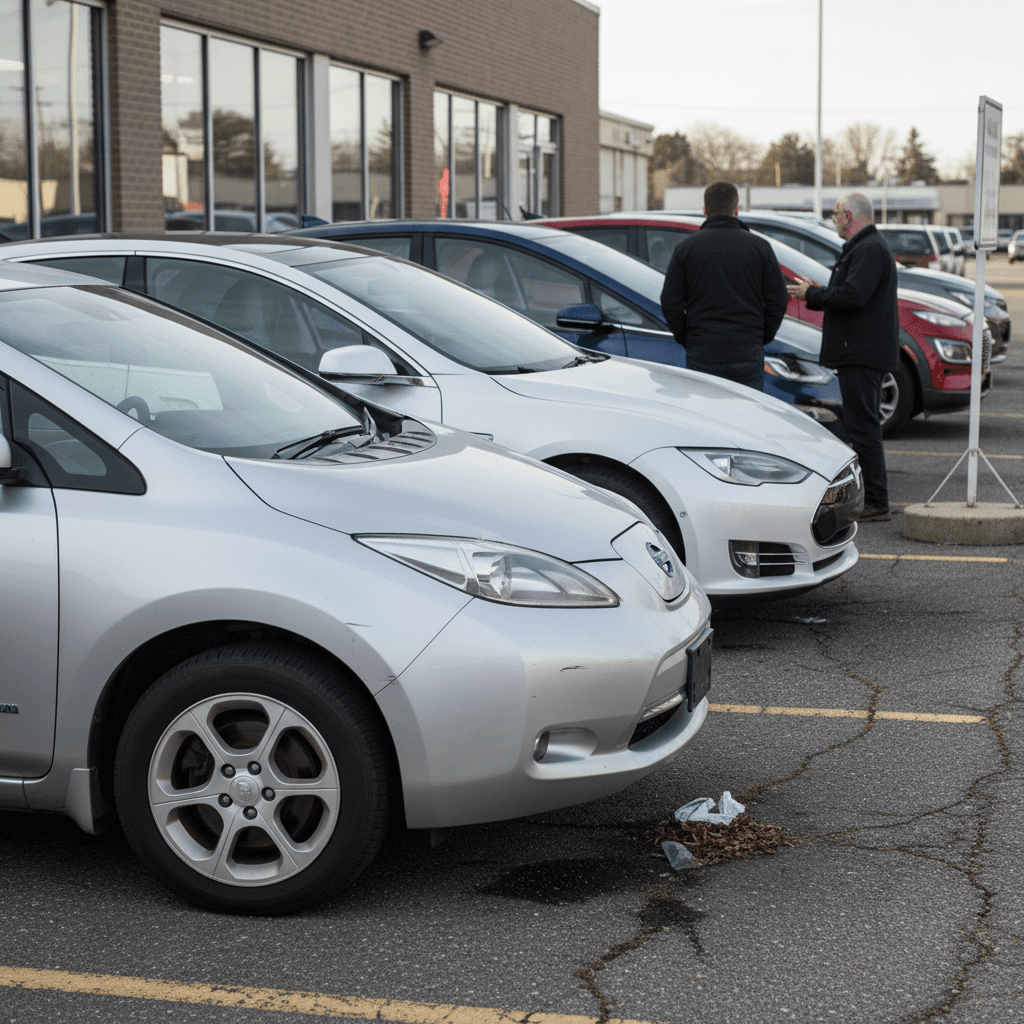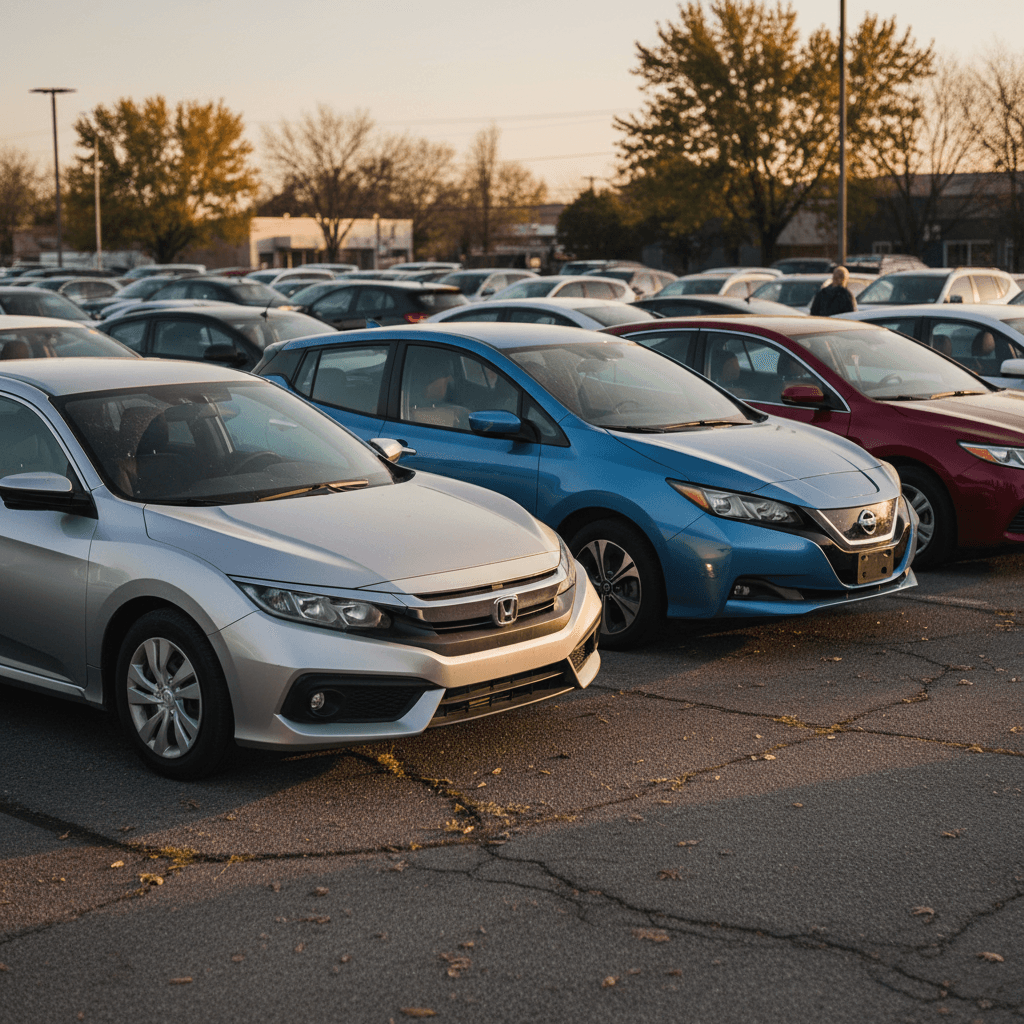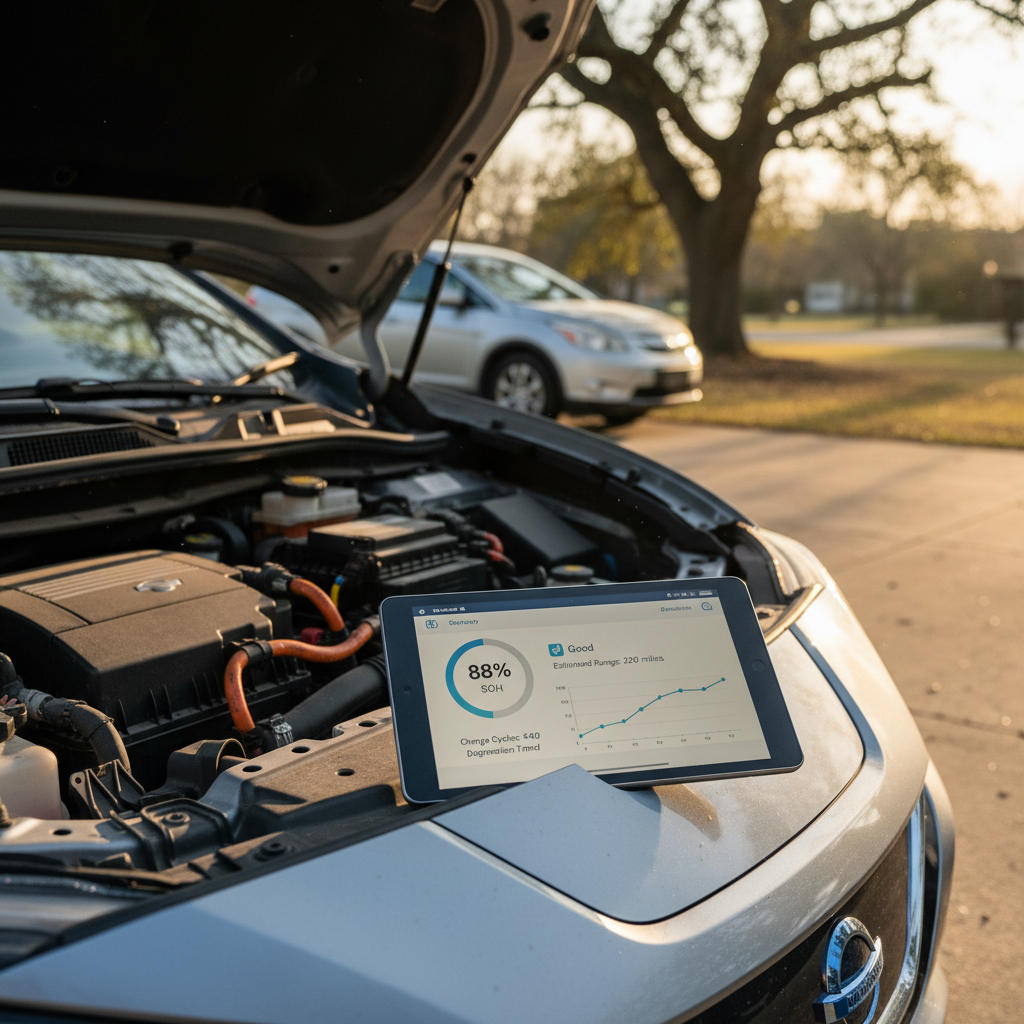You’re not imagining it, cheap reliable used cars are harder to find than they were a few years ago. Average three‑year‑old vehicles now hover around the $30,000 mark, and truly budget-friendly options under $15,000 are snapped up quickly. But with the right strategy, and a willingness to consider hybrids and used EVs, you can still land something dependable without wrecking your budget.
Quick snapshot: today’s used-car reality
Why cheap, reliable used cars are harder to find in 2025
For years, the smart move was simple: skip the new‑car sticker shock and buy a lightly used car instead. Then the pandemic hit, new‑car production hiccupped, and for several model years far fewer vehicles were built. Those "missing" new cars are the very ones that should be showing up as affordable 2‑ to 5‑year‑old trade‑ins today. They just aren’t there in the same numbers.
Key 2024–2025 used‑car numbers to know
What this means for you: the classic recipe, “find a three‑year‑old sedan off lease for half the original price”, doesn’t work the way it used to. To find truly cheap reliable used cars now, you either look older (7–10 years), shop smaller segments, or lean into the part of the market where prices have fallen fastest: used electric vehicles.
What “cheap” means in today’s used-car market
Ten years ago, a "cheap" used car meant $8,000–$10,000 and a little patience on Craigslist. In 2025, that same budget usually means an older compact with higher miles, and you’ll need to compromise less on reliability than on comfort, size, or features.
Common “cheap” price bands in 2025
Where value and reliability overlap
Under $10,000
Mostly 10+‑year‑old compact sedans and hatchbacks, often 120k–170k miles.
- Best bets: older Toyota Corolla, Honda Civic, Mazda3.
- Expect: basic features, some cosmetic wear.
$10,000–$15,000
Sweet spot for many cheap reliable used cars.
- Mix of 7–10‑year‑old sedans and small crossovers.
- Room for a well‑cared‑for gas car or an older hybrid.
$15,000–$20,000
Where used EVs and newer hybrids get interesting.
- 2018+ Nissan Leaf, early Chevy Bolt EV, or 3–5‑year‑old compacts.
- Lower running costs can offset slightly higher purchase prices.
Aim for value, not just a number
Best cheap reliable gas cars to target
If you just want a straightforward gas car that starts every morning, there are a handful of models that almost every mechanic will nod at. They’re not glamorous, but they’ve built reputations on durability, parts availability, and low running costs, exactly what you want when money is tight.
Gas-powered standouts for cheap reliability
Approximate 2025 U.S. used‑market prices and sweet‑spot years will vary by region and mileage, but these are strong starting points.
| Model | Target Years | Typical Price Range | Why it’s a winner |
|---|---|---|---|
| Toyota Corolla | 2014–2019 | $10,000–$17,000 | Legendary longevity, excellent parts availability, good fuel economy. |
| Honda Civic | 2013–2018 | $9,500–$16,000 | Durable drivetrains, fun to drive, easy to service almost anywhere. |
| Mazda3 | 2014–2018 | $8,500–$15,000 | Sportier feel, surprisingly upscale interiors, solid reliability if maintained. |
| Toyota Camry | 2012–2017 | $9,000–$15,000 | Bigger and more comfortable, with the same Toyota durability. |
| Hyundai Elantra | 2017–2019 | $10,000–$15,000 | Strong value, newer tech features at lower prices than rivals. |
| Mazda CX‑5 | 2014–2018 | $12,000–$18,000 | Compact SUV with good safety scores and reasonable ownership costs. |
Always verify pricing and condition locally, these figures are directional, not promises.
Watch the trim, not just the badge
Hybrids and EVs: When electric is the cheaper long-term bet
In 2025, the phrase cheap reliable used cars quietly includes more hybrids and EVs than ever. Used EV prices dropped sharply in 2024, and many hybrids have racked up hundreds of thousands of miles in taxi and rideshare duty. The fear, of course, is batteries, specifically, paying for one.
Used hybrid reality
- Models like the Toyota Prius and Camry Hybrid have proven that well‑designed hybrid batteries can last 10+ years.
- When they do fail, replacement is costly, but far less common than internet horror stories suggest.
- Hybrids are ideal if you do a lot of highway driving or can’t easily charge at home.
Used EV reality
- Used EV prices have fallen faster than gas cars, making 3–6‑year‑old EVs surprisingly affordable.
- Maintenance is often lower: no oil changes, fewer moving parts, and less brake wear.
- The key variable is battery health, how much capacity remains versus new.
The big mistake with used EVs
Best cheap reliable used EVs to look for

If you’re open to going electric, the sweet spot for cheap reliable used cars often lies between $15,000 and $25,000 for a well‑cared‑for EV with enough range for real‑world use. Here are models that routinely show up on reliability and value lists, and that we see performing well in the used‑EV marketplace.
- Nissan Leaf (2018+) – Second‑generation Leafs with the 40 kWh or 62 kWh battery offer roughly 150–226 miles of range when new, and they’ve become some of the most affordable, reliable EVs on the market. Prioritize 2018+ for improved battery chemistry.
- Chevrolet Bolt EV (2017–2021) – Around 238 miles of original EPA range, a practical hatchback body, and many cars with new replacement battery packs under warranty. A strong candidate if you want maximum range per dollar.
- Hyundai Ioniq Electric (2019–2020) – About 170 miles of range and excellent efficiency. Not the flashiest EV, but owners report smooth, quiet commuting and low operating costs.
- Hyundai Kona Electric / Kia Niro EV – Subcompact crossovers with solid range and useful cargo space. Prices are still higher than Leaf/Bolt in many regions, but they’re trending down.
- BMW i3 – Quirky, lightweight, and surprisingly durable. Range is shorter, but for city driving it can be an engaging and efficient choice if you understand its limits.
Why used EVs can be the best “cheap reliable used cars”
Price comparison: Gas vs hybrid vs EV used deals
Sample 2025 used‑car deals by type
How typical used pricing and running costs might compare for similar‑size vehicles if you’re shopping for cheap reliability.
| Type & example | Approx. purchase price | Fuel/energy costs | Who it fits best |
|---|---|---|---|
| Gas compact (Toyota Corolla) | $13,500 | ~$1,400/yr at 32 mpg & 12,000 mi/yr* | Drivers who want simplicity, can’t charge at home, and prioritize proven longevity. |
| Hybrid (Toyota Prius) | $15,500 | ~$900/yr at 50 mpg & 12,000 mi/yr* | High‑mileage commuters who want great MPG but aren’t ready for a plug. |
| Used EV (2019 Nissan Leaf) | $17,000 | Equivalent of ~<$700/yr at typical residential rates | Drivers with home or workplace charging whose daily use fits within the EV’s real‑world range. |
| Used EV (2019 Chevy Bolt EV) | $18,500 | Similar or lower than Leaf thanks to strong efficiency | Drivers who want one reasonably priced car that can handle most trips without frequent fast‑charging. |
These are illustrative examples; always run the numbers with your local prices, incentives, and electricity rates.
Don’t forget incentives and local perks
Inspection checklist for any cheap used car

No matter how good the model’s reputation is, each used car has lived its own life. A rock‑solid Corolla can be destroyed by skipped oil changes; a Bolt EV can be brilliant if it just received a new battery pack. Use this checklist as a non‑negotiable baseline before you sign anything.
Pre‑purchase inspection essentials
1. Scan for accident and flood damage
Pull a vehicle history report and look for title issues, airbag deployments, or repeated insurance claims. Walk around the car for mismatched paint, uneven panel gaps, or rust in odd places, classic signs of previous damage.
2. Ask for service records
A stack of receipts from one or two shops is gold. Look for regular oil changes on gas cars, coolant and brake‑fluid service, and, on EVs, any battery or high‑voltage system work done under warranty.
3. Have a trusted mechanic inspect it
A third‑party inspection is cheap insurance. For EVs, choose a shop or provider that understands high‑voltage systems and can assess the battery and charging hardware, not just tires and brakes.
4. Check tires, brakes, and suspension
Worn tires, rotors, or leaking struts can add thousands to the "cheap" car you just bought. Have the inspector price out anything that needs immediate attention so you can budget, or negotiate.
5. Test everything electrical
Locks, windows, infotainment, backup cameras, advanced safety systems, fixing modern electronics can be expensive. Take your time, and don’t let anyone rush your test drive.
6. For EVs: get a real battery health report
Don’t settle for a guess based on the dash display. You want a quantified battery‑health reading (state of health, in %) so you know how much range you’re really buying.
Don’t waive the inspection to “win” a car
Financing and total cost of ownership
A lot of buyers focus on the monthly payment and forget everything else. In 2025, with interest rates higher than they were a few years ago, stretching to a 7‑year loan on an older used car can trap you in negative equity. A truly cheap reliable used car is one you can afford to own, not just to finance.
Smart financing habits
- Aim for the shortest loan term you can realistically manage; five years is a good upper limit on older used cars.
- Try to put down at least 10% to cushion against depreciation.
- Don’t roll old debt into the new loan if you can avoid it, that’s how you end up owing more than the car is worth.
Look beyond the payment
- Price out insurance before you buy; some EVs and newer cars can cost more to insure than you expect.
- Estimate fuel or electricity costs based on your real driving pattern, not just EPA numbers.
- Set aside a repair/maintenance fund, especially for higher‑mileage vehicles.
Why total cost of ownership favors the right EV
How Recharged makes buying a used EV simpler
If you decide your next cheap reliable used car should be electric, you don’t have to figure it all out alone. That’s exactly where Recharged fits in.
Buying a used EV through Recharged
Designed for shoppers who want value without guesswork
Verified battery health
Every vehicle on Recharged comes with a Recharged Score Report that includes a third‑party battery‑health diagnostic, so you know how much range you’re really getting on day one.
Transparent pricing
Recharged benchmarks each EV against fair‑market pricing, so you can see how a specific car stacks up without combing through dozens of listings yourself.
End‑to‑end support
You can finance, trade in, and arrange nationwide delivery online, or visit the Recharged Experience Center in Richmond, VA for in‑person help from EV specialists.
Stretch your budget the smart way
FAQ: Cheap reliable used cars in 2025
Frequently asked questions
The bottom line: How to shop smart in a tough market
Finding truly cheap reliable used cars in 2025 takes more work than it did a decade ago. Prices are higher, good cars move quickly, and the market is flooded with buzzwords instead of real information. But if you’re willing to cast a slightly wider net, considering dependable gas sedans, proven hybrids, and the new wave of affordable used EVs, you absolutely can still get solid transportation without overpaying.
Focus on model reputation, individual vehicle history, and, for EVs,

